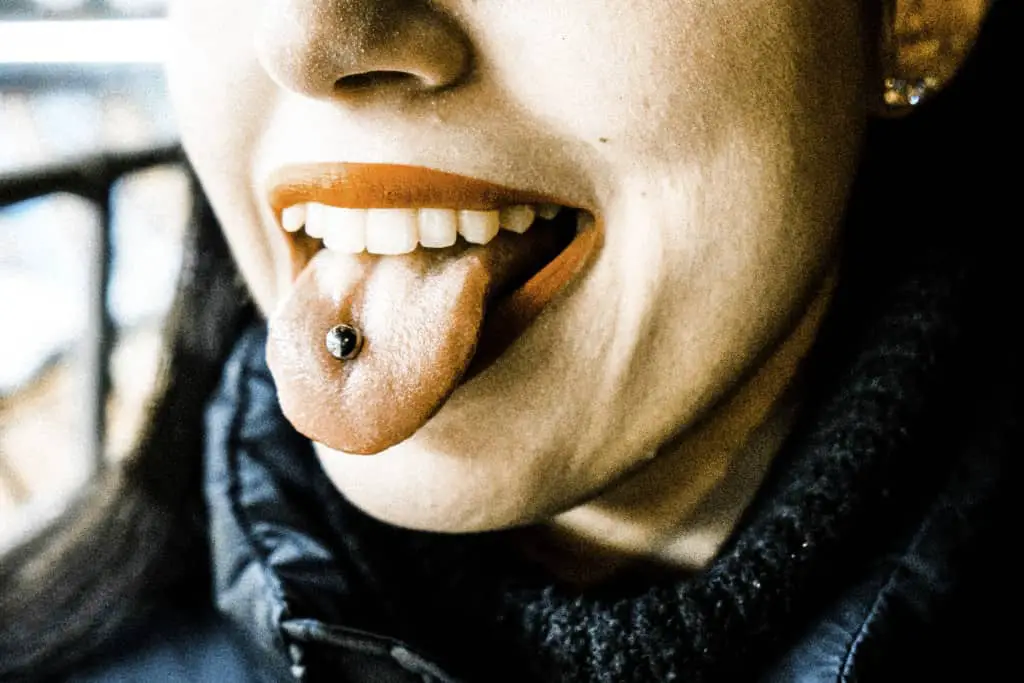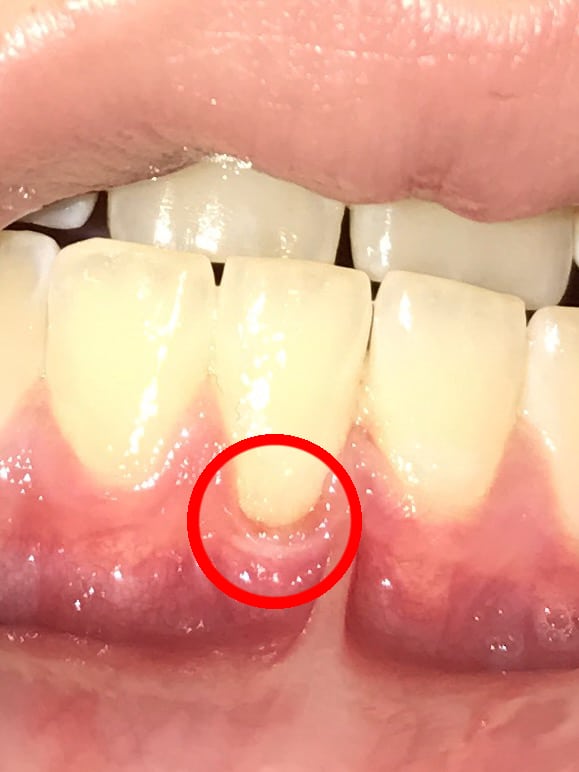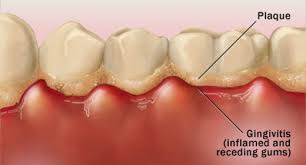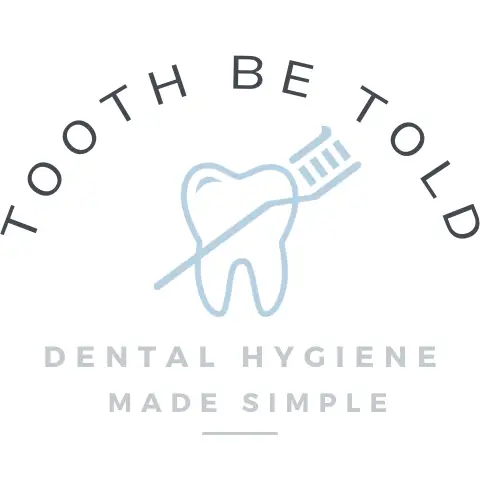
It’s pretty well known that oral piercings can damage your mouth in more ways than one. But having oral piercings is a way of expressing who we are and sometimes… you just want a lip ring!
If you are thinking of getting a piercing in your mouth or on your lips/cheeks, there are a few things you should be aware of before going ahead with the piercing.
Or if you already have an oral piercing, you should know what you need to do to prevent irreversible damage to your mouth that later down the road you regret.
10 best ways to prevent damage to your teeth and gums from your piercing are;
- Use plastic piercings or a Bioplast piercing
- Do not chew or play with it
- Remove for activities that involve physical contact such as sports
- Be careful when you’re eating and eat more slowly
- Choose a flat back
- Rinsing with warm saltwater
- Remove and clean on a regular basis
- Keep an eye on your gum tissue
- Consider the placement prior to piercing
- Keep up with regular dental appointments
Being aware of the dangers mouth piercings can cause is important for you to know, so you can prevent it. Prevention is the cheapest form of treatment.
If you wait too long, the damage becomes much more expensive to repair, and may not even be able to be repaired.
How to prevent damage to teeth and gums from oral piercings
Don’t miss out! You can find all my go-to dental hygiene products that I recommend to all my patients here .
.
1. Use plastic piercings or a Bioplast piece like the one linked below


Using a plastic or bioplast piercing will reduce the damage to the teeth and gums. If you had a metal stud, it is a harder material and will cause more damage. Even using an acrylic piercing is better than metal, but not as good as the Bioplast piercings.
is better than metal, but not as good as the Bioplast piercings.
The softer the material the better.
2. Do not chew on it or play with it
Chewing, biting or playing with the oral piercings with your teeth cause the teeth to chip, crack, break, and the gums to recede. All of this damage is unfortunately irreversible.
Gum tissue, and teeth cannot grow back so whatever damage is caused you’re stuck with.
Sometimes these habits can become more frequent in times of stress, tiredness or hard thinking. You might not even be aware that you are doing it. So please keep an eye out on your teeth for any signs of damage.
Also, depending on the location of the piercing, when you are eating the knife and fork could catch on it as well. This could pull on the piercings and cause tears in the tissue.
3. Remove the piercing for activities that have physical contact such as sports
A lot of sports have contact and the impact on the face can cause a lot of damage.
If you take a hard blow to the face, the piercing could rip through or puncture the tissue, and these injuries could require stitches and could leave a permanent scar.
Impact on the piercings could even cause them to come out and that increases the chance of choking or swallowing it.
Even high-intensity workouts or runs and can cause you to accidentally bite down on the piercing.
4. Be careful when you’re eating and eat more slowly
Have you ever been eating too fast and all of a sudden your tongue gets in the way and OUCH! Your tongue is now throbbing and causing a lot of pain and we have a moment of anger with ourselves for doing it.
We don’t mean to bite our tongue or even the lips and cheeks which can get in the way sometimes to. All these areas are where oral piercings usually are, increasing the chance of biting on them when we are chewing our food.
When we eat we exert about 70 lbs of pressure… just imagine 70 lbs coming down on a metal or acrylic piercing. That can easily break a tooth if it hits the right spot.
5. Choose a flat back
If you have a stud-type piercing, you will want to switch to a flat back. The flat back will be more flush with the tissue it goes through so it doesn’t have as much contact with the teeth and gums.
This is something that is so easy and cheap to change, and you don’t have to think about it.
Flat backing piercings like this one are what you want to look for.
are what you want to look for.
6. Rinsing with warm saltwater
Saltwater rinses have been proven to be an excellent way of killing and reducing the number of bad bacteria in the mouth. Unless you have a salt-restricted diet, saltwater rinsing can be done once a week or more if you’d like.
to be an excellent way of killing and reducing the number of bad bacteria in the mouth. Unless you have a salt-restricted diet, saltwater rinsing can be done once a week or more if you’d like.
The recipe for a saltwater mouth rinse is:
Recipe
At least ½ teaspoon to every 1 cup of water. This will give you a 0.9 M concentration which is more than enough to inhibit the bad bacteria in your mouth.
- Warm 1 cup of water in the microwave. You do not want it hot!
- Stir in and dissolve at least ½ a teaspoon of table salt.
- Once dissolved completely, you can then start rinsing.
- Take a mouthful of the saltwater and gently swish it around your mouth for at least 5-10 seconds and spit it out.
- Repeat until the whole cup of saltwater is used.
Try not to consume anything by mouth for at least 30 minutes after. This will allow the remaining solution to keep working until the saliva in your mouth rinses most of it away (which takes about 30 minutes).
For more info on the salt water rinse recipe, I wrote an entire post on it linked below:
Read now: Salt Water Mouth Rinse Recipe
7. Remove and clean on a regular basis
Even though the saltwater rinse will kill a lot of the bacteria and help cleanse the area of the piercings, they still need to be removed on a regular basis and brushed clean.
Plaque and calculus (tartar) can build up on the piercing, and won’t be removed with just rinsing. Similar to our teeth, we can’t just rinse with salt water, we need to floss and brush to mechanically remove the debris.
Where there is a build-up of calculus (tartar) on the piercing more bacteria will be attracted to it and could cause a serious infection.
8. Keep an eye on your gum tissue
The gum tissue is very delicate and responds quickly to things that are damaging it. This is why gingivitis and gum disease can occur quickly. When the gum tissue retreats, the bone will start as well.

If your piercing is rubbing against the gums, it can wear them down and cause root exposure. When the root is exposed, the chances of getting a cavity increase and tooth sensitivity can increase as well.
This is because the root surface is a lot softer than the crown of the tooth which the top layer is made out of the hardest substance in our body, enamel.
Because of the porous nature of the root, when the gum tissue protecting it isn’t there, a stimulus such as hot/cold, touch, or sweet can reach the nerve of the tooth more quickly causing it to send the signal of pain to your brain.
Read Now: What Sensitivity Toothpaste Works the Best?
The root is also a lot more yellow than the crown of the tooth and may not be aesthetically pleasing. You also can’t really whiten the root of the tooth, and this can be a common misconception to people who think their teeth are yellow. It could just be that they have a lot of root exposure.
9. Consider the placement prior to piercing
Depending on the location of your piercing, more damage may be caused and can range from mild complications to severe.
Common piercing placements are lip, tongue and cheek, and choosing where you get pierced can make a difference in how much
If you are getting or thinking of getting your tongue pierced, ask the specialist who is doing the piercing to place it farther back on the tongue. The farther back the piercing makes it harder to bite on it and catch it between your teeth damaging the gums and teeth.
Even though you are protecting your mouth with these tips, damage can still happen. But what do piercings really do to the mouth?
Read Now: 16 Most Common Risks of Oral Piercings You Need to Know Now
10. Keep up with regular dental appointments
The nice thing about the dental office is that we have a big bright light and little mouth mirrors that we use to see all those dark and unknown areas of your mouth. We will be able to see a lot more that you will be able to at home. We also know what to look for, as the average person doesn’t, and may miss a critical area.
We can also offer professional advice that is tailored to you. Professionals can assess your mouth in person, and see what exactly is is that you need.
It’s one thing for me to just ramble on here, but a whole other ballpark for you to have in-person professional advice and regular dental hygiene and dentist check-ups.
Having regular dental cleanings will reduce the number of pathogenic (bad) bacteria in your mouth that contribute to oral diseases.
The more of these bacteria there are in your mouth, they will increase the incidence of gingivitis, gum disease which can lead to bone and tissue loss and eventual tooth loss.

Oral piercings are just more surface area for those bacteria to make homes on and to contribute to irreversible oral diseases.
Your dental hygienist or dentist can do certain exams to give you a comprehensive overview of your oral health.
I hope this information can help you, have a great day,
Holly 🙂


